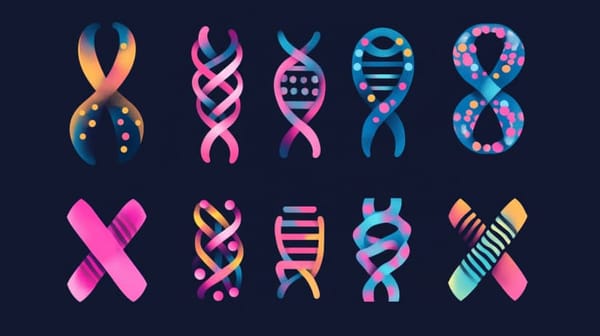Caffeine is a stimulant which makes you feel more energized, contracts the gallbladder, releases dopamine and adrenaline, and other catecholamines. This usually makes you feel better, though it can also increase symptoms of anxiety. Because it’s a stimulant, like all stimulants it has addictive properties and tolerance build up. It is wise to consider taking breaks from stimulants from time to time. Clearing caffeine from your system can take a much longer time, and some argue that it can take months to heal from affected pathways. Caffeine's metabolites can sit in our bodies for a long time, so the idea that coffee has a half-life of 4 hours is not a good metric to go by.

What we need to realize here are a few key things:
Caffeine half-life varies especially in sick individuals. You need to figure out how well your body metabolizes caffeine based on your own body. Do you sleep badly if you’ve had caffeine around noon? Maybe your body metabolizes it slowly. Make sure you only have it earlier if you choose to partake. Do you feel completely fine having it late in the day? Maybe your body super quickly metabolizes it.
Caffeine Metabolizes into Paraxanthine. Its metabolite, paraxanthine has many of the same effects as caffeine, albeit slightly less jitteriness. It also has a half-life of 8 hours, so you can imagine that caffeine’s adenosine and pharmacological effects are actually double what we think. If we give caffeine a half-life of 4-5 hours and then top up an additional half-life for its metabolite, we can easily extend caffeine's effects to something more like a 12-16 hour half-life. This means that it may not always be enough to simply take a day off of caffeine to completely clear its effects from the body. Paraxanthine can be floating around even after 36 hours. You might think something along the lines of “Oh, I’ll just take paraxanthine instead of caffeine so that I get a more restful sleep”. You may be unto something, but at the same time there is not enough research on taking straight paraxanthine for long periods of time - so keep that in mind.
Stimulants raise blood pressure and can cause anxiety. Both these factors are essential to keep in mind if you are trying to heal from a chronic illness. Most chronic illnesses are exacerbated by stress and it is quite clear that stimulants can be stress inducing. In my experience with long covid, POTS, and PEM, you can speed up healing by getting off of stimulants completely. Sometimes this is impossible when you need to keep your job and grind monotonous work, but this is something everyone needs to be aware of. This is why there are many strategies around quitting, or continuing stimulants that you need to investigate.
Stimulants are addictive and build tolerance. You need to consider this when thinking about how and why you use caffeine. If you need its effects then you would be wise to consider strategies to fixing your tolerance levels so that you don’t have to keep taking such high amounts of caffeine. This may require some days off, which will be hard. A hack to resetting synaptic pathways and dependence is fasting, and dry fasting does this the fastest. Considering you may want to include a bit of a detox and tolerance reset with your next fast, it's important that you do not take caffeine shortcuts in your fasts. Remember, it may take around 36 hours to clear caffeine metabolites, so this is the minimal amount of time you’d want to detox, but every hour after that is when the healing and resetting actually happens.
Coffee moves bile around. Contracting the gallbladder moves bile. Moving bile means less cholesterol precipitating into gallstones. But what happens when your reuptake is inhibited and digestion shuts down? Keep this in mind as my next article will talk about this more and how to harness this power while also being aware of possible complications.
Additional thoughts
If you’re trying to get off caffeine or take some time off to reset tolerances, you can consider rotating in other stimulants (if necessary). More natural types of stimulants include nicotine and sugar. I’ve had a lot of success switching to a high-carb low-fat diet when taking days or weeks off of caffeine. (Switching to high carb requires adequate control of gallstones forming) Ideally, you have caffeine on an empty stomach because it releases glycogen and can cause some pretty severe blood sugar spikes. Some people can't handle it on an empty stomach. Just keep in mind that if you have x amount of sugar in the blood and then drink coffee, you will have 2x the amount of sugar in the blood. Coffee includes a form of insulin resistance because it releases fatty acids into the bloodstream via lipolysis. This means the blood sugar will circulate and cause more damage for longer due to the Randle cycle activation. If you are trying to keep your metabolism up, you can try having a small fast-carb breakfast 2 hours before your coffee, and to avoid eating for at least the first four hours of having a coffee.
So, Is coffee safe for fasting when you have chronic health issues? The answer is no, specifically because your priority needs to be to avoid adrenaline and anxiety and focus on healing and staying in a deep rest-and-digest state. Yes, caffeine can positively impact HRV for healthy individuals, but this effect is not seen in chronically sick and especially people with any form of heart issues. If you are chronically ill, focus on dropping coffee and return to it when you are healthy. If you require it for your day-to-day livelihood, you will need to come up with a strategy to mitigate a lot of the stress.







